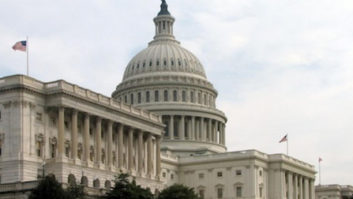Earlier this year, the leadership of the House and Senate committees and subcommittees that regulate communications said they intended to begin the process of rewriting the Communications Act of 1934 this June. Obviously, they got side-tracked.
The last big rewrite was in 1996. Though lawmakers have proposed rewrites since, none has gained steam. In May the FCC released a Notice of Inquiry as part of its periodic review of its media ownership rules, which are part of the act. As RW has reported, the agency sought comment on whether the media ownership rules still work as is or if they need to be changed.
This week, Commissioner Meredith Attwell Baker, a Republican, told attendees of the Federal Communications Bar Association luncheon that the current law treats media like “dated silos” and makes little sense in an age of combined media outlets; she said it “undermines the commission’s effectiveness and the adoption of the most coherent and consistent policies possible.” Yet, a full-scale rewrite of the act is a daunting challenge; she reminded attendees that in the Senate alone, the ’96 Act required 31 hours of testimony, 11 days of hearings and 86 or more witnesses.
A more realistic path would be to make smaller changes within the existing framework, said Baker, as the agency will be operating under the existing act for some time, and “we need a better means to do so.”
She suggests the FCC focus on its core competencies. The agency needs to work more aggressively to establish a national spectrum plan, and update its allocation and service rules to reflect modern technologies and spectrum demands, she said. “We cannot let another year go by without providing a clear roadmap to industry about future spectrum availability.”
The commission should act incrementally, Baker said, recognizing that its rules and past actions have created expectations — from consumers to investors — that must be addressed.












